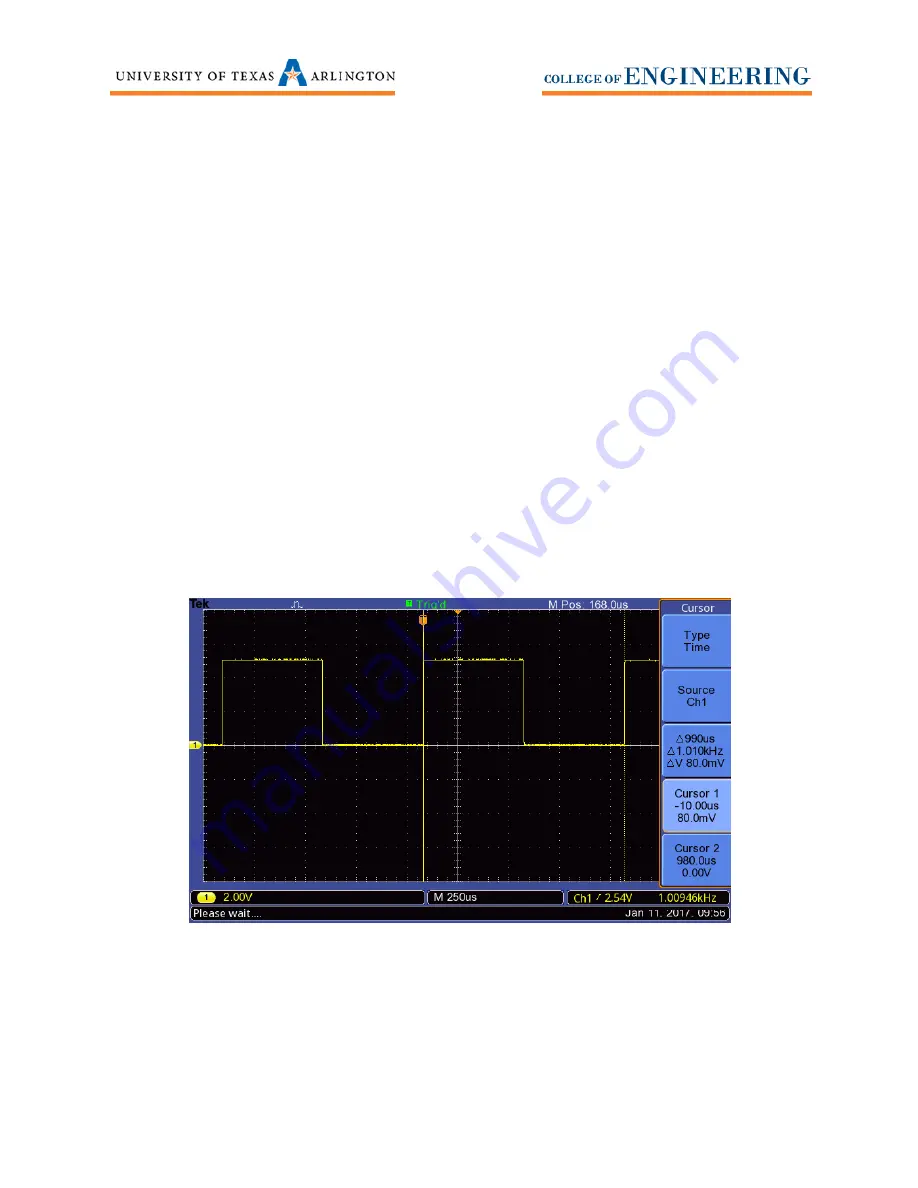
7
Cursors
To obtain manual measurements use the
Cursors
button near the
Multipurpose
wheel.
1.
Press the
Cursor
button to access the cursors menu.
2.
The default setting is for the cursors to be off. Press the
Type
softkey and use the
Multipurpose
wheel to select either
Amplitude
or
Time
. Then press the
Multipurpose
wheel
to select your choice.
3.
Selecting
Amplitude
will display new softkeys on the menu. Ensure the
Source
softkey is on
the channel you wish to measure. Press
Cursor 1
and use the
Multipurpose
wheel to move
the cursor to the top of the signal your interested in. Press
Cursor 2
and use the
Multipurpose
wheel to move the cursor to the bottom of the signal your interested in. The
middle softkey will show you the difference in Amplitude between the two cursors.
4.
Selecting
Time
will display new softkeys on the menu. Ensure the Source softkey is on the
channel you wish to measure. Press
Cursor 1
and use the
Multipurpose
wheel to move the
cursor to the start of the signal your interested in. Press
Cursor 2
and use the
Multipurpose
wheel to move the cursor to the stopping point of the signal your interested in. The middle
softkey will show you the difference in Time between the two cursors. See
Figure 7
.
5.
Pressing the
Menu On/Off
button below the softkeys will hide the menu but leave the
cursors on the screen. To remove the cursors, set the top softkey
Type
to
Off
.
Figure 7










